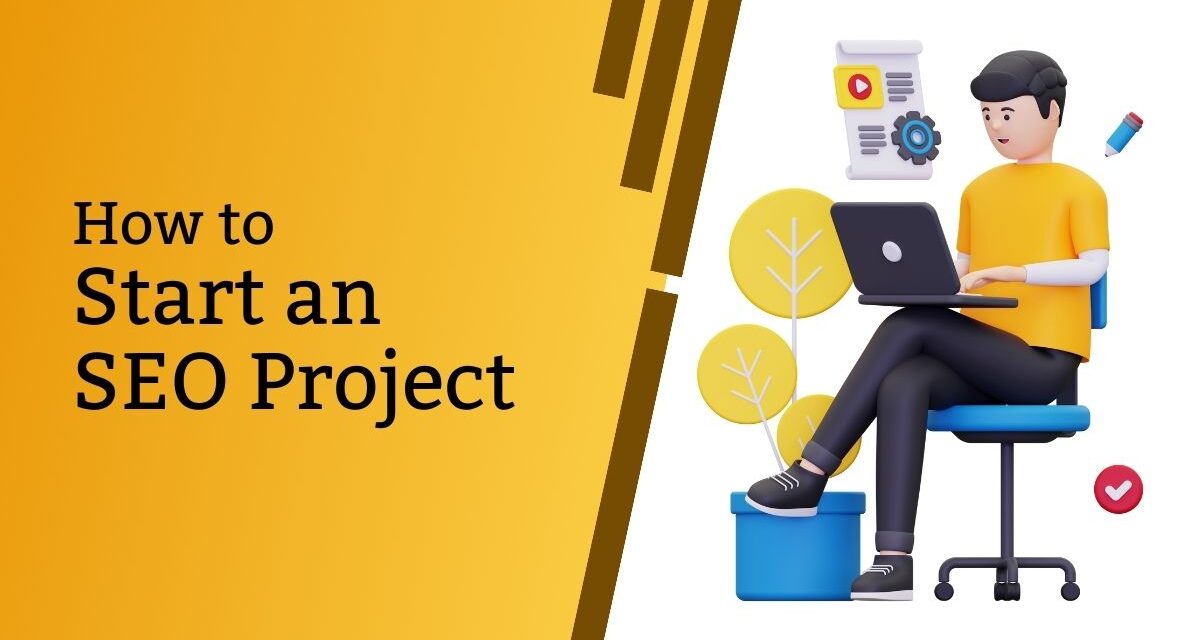In the digital age, the importance of search engine optimization (SEO) cannot be overstated. Whether you’re a business owner looking to increase online visibility or a marketer aiming to boost organic traffic, embarking on an SEO project can significantly impact your online presence. This article will guide you through the steps on how to start an SEO project effectively.
Setting Objectives
Before delving into the world of SEO, it’s crucial to set clear objectives. Define what you want to achieve through SEO – whether it’s improving search engine rankings, increasing website traffic, or boosting conversions. Setting specific goals will help you measure your project’s success and provide a clear direction for your SEO efforts.
Keyword Research
Keyword research is the cornerstone of any SEO project. Understand the keywords relevant to your business and industry. Utilize keyword research tools and perform competitor analysis to identify potential keywords that can drive organic traffic to your website.
On-Page SEO
Optimizing your website’s on-page elements is vital. Ensure your website’s structure is user-friendly and easy to navigate. Optimize your content with relevant keywords and meta tags. Don’t forget image optimization – use descriptive alt tags to enhance accessibility and SEO.
Off-Page SEO
Off-page SEO involves building your website’s authority and reputation. Focus on acquiring high-quality backlinks from reputable websites. Implement strategies like guest posting and outreach to expand your online presence.
Technical SEO
Technical SEO ensures your website’s backend is search engine friendly. Pay attention to site speed, mobile-friendliness, URL structure, and the use of canonical tags. Implement schema markup to provide search engines with structured data about your content.
Content Strategy
Developing a robust content strategy is essential. Create high-quality, informative content that resonates with your target audience. Utilize blogging and content marketing to establish your website as an authoritative resource in your field.
Analytics and Tracking
Implement tools like Google Analytics to monitor your website’s performance. Regularly track your progress, analyze the data, and make data-driven decisions to improve your SEO strategy.
Local SEO
For businesses with a physical presence, local SEO is critical. Optimize your Google My Business listing and ensure consistent information on local directories. This will help you appear in local search results.
Social Media Integration
Leverage social media platforms to promote your content and engage with your audience. Social signals can indirectly impact your search engine rankings.
User Experience
A positive user experience is crucial for SEO success. Focus on making your website user-friendly, reducing bounce rates, and ensuring quick load times.
SEO Tools
Utilize SEO software to streamline your efforts. A/B testing can help you fine-tune your SEO strategy for optimal results.
Staying Updated
The world of SEO is constantly evolving. Stay updated with algorithm changes and industry trends to adapt your strategy accordingly.
Budgeting
Allocate resources wisely for your SEO project. Perform a return on investment (ROI) analysis to ensure you’re getting the most out of your SEO efforts.
Conclusion
Starting an SEO project can be a daunting task, but with the right strategy and dedication, you can significantly improve your online presence. Remember to set clear objectives, conduct thorough keyword research, optimize both on-page and off-page elements, and stay updated with the latest SEO trends.
In conclusion, SEO is an ongoing process that requires continuous effort and adaptation. By following the steps outlined in this article, you can kickstart your SEO project with confidence and work towards achieving your online goals.
FAQs
Q1: How long does it take to see SEO results?
SEO results vary, but you can expect to see significant changes in 4-6 months.
Q2: Is SEO a one-time project, or an ongoing effort?
SEO is an ongoing effort. Continuous optimization is essential for maintaining and improving your rankings.
Q3: What tools can help with keyword research?
Popular keyword research tools include Google Keyword Planner, SEMrush, and Ahrefs.
Q4: Can I do SEO for my website on my own, or do I need a professional?
You can start with basic SEO on your own, but for competitive industries, it’s advisable to consult an SEO professional.
Q5: What is the importance of mobile-friendliness in SEO?
Mobile-friendliness is crucial as it directly affects your website’s ranking on mobile search results, which are increasingly important in today’s digital landscape.





